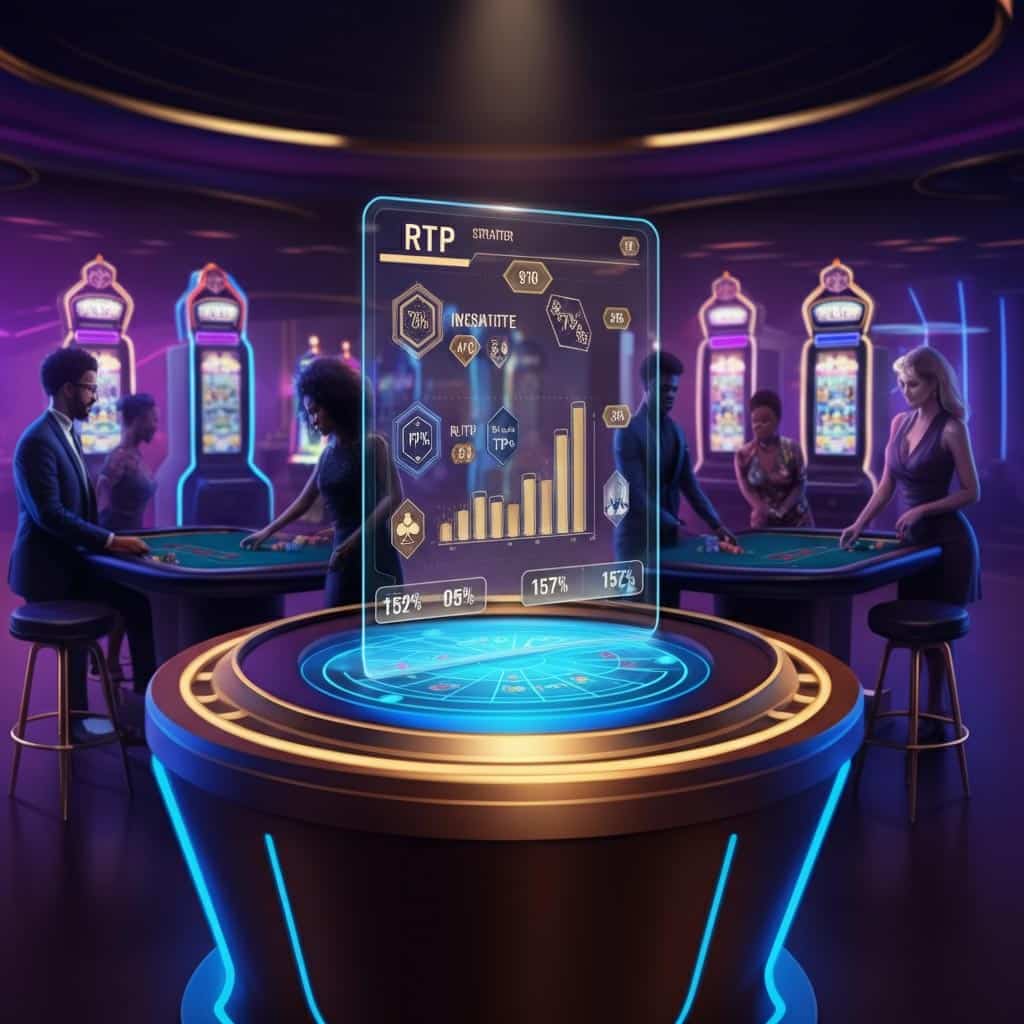
Walk into any internet online casino or poker room, and you’ll encounter two types of players: those who gamble for entertainment and those who treat it as a profession. The difference between them isn’t luck—it’s mindset, strategy, and an almost surgical approach to risk management.
Professional gamblers represent a unique breed of individuals who’ve mastered the art of turning uncertainty into calculated advantage. They don’t chase the thrill of the big win or hope for lightning to strike twice. Instead, they approach gambling with the same methodical precision a surgeon brings to the operating room.
But what separates these elite players from the millions who lose money every year? How do they maintain profitability when the odds seem stacked against them? The answer lies in understanding the psychological, strategic, and financial frameworks that govern their decision-making process.
This exploration takes you behind the scenes of professional gambling, revealing the mental strategies, analytical approaches, and lifestyle choices that define success in this high-stakes world. Whether you’re curious about the profession or looking to improve your own gaming approach, understanding these principles offers valuable insights into risk, reward, and human psychology.
The Psychology of Professional Gambling
Professional gamblers possess a unique psychological makeup that sets them apart from recreational players. Their relationship with risk, money, and uncertainty follows patterns that seem almost counterintuitive to the average person.
Emotional Detachment and Mental Fortitude
The most successful professional gamblers treat each game session like a business transaction. They understand that emotional attachment to individual outcomes can cloud judgment and lead to poor decision-making. This emotional detachment allows them to make rational choices even when facing significant losses or unexpected wins.
Mental fortitude becomes crucial when dealing with variance—the natural fluctuations in results that occur over time. A professional might experience weeks or even months of losses despite making correct decisions. Their ability to maintain confidence in their strategy during these downturns separates professionals from amateurs who might abandon winning strategies after a few bad sessions.
Risk Assessment and Probability Thinking
Professional gamblers excel at probability thinking. They don’t see gambling as a series of independent events but as a long-term mathematical process. This perspective shift allows them to make decisions based on expected value rather than immediate results.
When playing at an internet online casino, professionals focus on games where they can gain mathematical advantages through skill, strategy, or favorable conditions. They avoid games with high house edges and instead concentrate on opportunities where their expertise can overcome the built-in casino advantage.
Discipline and Self-Control
Perhaps the most important psychological trait is discipline. Professional gamblers set strict rules for themselves and follow them regardless of circumstances. This includes knowing when to stop playing, when to increase or decrease bet sizes, and when to walk away from unfavorable situations.
Self-control extends beyond the gaming table. Professionals carefully manage their time, energy, and mental resources. They understand that fatigue, stress, or emotional disturbance can negatively impact their decision-making abilities.
Strategic Thinking and Game Analysis
The analytical side of professional gambling resembles quantitative finance more than traditional gaming. Professionals employ sophisticated methods to identify and exploit advantages in various gambling scenarios.
Game Selection and Advantage Identification
Professional gamblers are selective about the games they play. They focus on opportunities where skill can overcome chance, such as poker, sports betting, or advantage play in casino games. Each game requires different skill sets and offers different potential advantages.
In poker, professionals study opponent tendencies, position play, and betting patterns. They understand that their primary competition comes from other players, not the house. Sports bettors analyze team statistics, injury reports, and market inefficiencies to find value in betting lines.
Even in traditional casino games, professionals look for exploitable conditions. Card counters in blackjack track the composition of remaining cards to identify favorable situations. Skilled players might seek out games with favorable rules or inexperienced dealers who inadvertently provide information.
Statistical Analysis and Expected Value
Every decision a professional gambler makes is based on expected value calculations. They understand that short-term results matter less than long-term mathematical expectations. This approach requires constant analysis of odds, probabilities, and potential outcomes.
Professional gamblers often maintain detailed records of their play, tracking results across different games, stakes, and conditions. This data helps them identify their most profitable opportunities and areas where they might be losing money.
Adapting to Changing Conditions
The gambling landscape constantly evolves, and successful professionals adapt their strategies accordingly. Internet online casino games may change rules or introduce new variations. Sports betting markets become more efficient as more information becomes available.
Professional gamblers stay ahead of these changes by continuously studying their chosen games and refining their approaches. They understand that strategies that worked in the past may not remain profitable indefinitely.
The Art of Bankroll Management
Financial management represents the foundation of professional gambling success. Without proper bankroll management, even the most skilled players can face financial ruin due to natural variance.
Understanding Risk of Ruin
Professional gamblers calculate their risk of ruin—the probability of losing their entire bankroll before achieving their goals. This calculation depends on their advantage, bet sizing, and bankroll size. Most professionals aim to keep their risk of ruin below 5% to ensure long-term survival.
The concept of risk of ruin explains why professional gamblers often appear to bet conservatively relative to their bankroll size. They understand that preserving their ability to continue playing is more important than maximizing short-term profits.
Bet Sizing and Kelly Criterion
Many professional gamblers use the Kelly Criterion or similar mathematical formulas to determine optimal bet sizes. This approach maximizes long-term growth while minimizing the risk of significant losses.
The Kelly Criterion considers both the probability of winning and the payoff odds to determine what percentage of the bankroll should be wagered on each bet. Professional gamblers often bet a fraction of the Kelly recommendation to account for estimation errors and reduce volatility.
Diversification and Income Management
Successful professional gamblers often diversify their activities across multiple games or betting markets. This diversification reduces overall risk and provides multiple income streams.
They also separate their gambling bankroll from personal finances. Money needed for living expenses, emergencies, or other investments is kept separate from gambling funds. This separation prevents personal financial pressure from affecting gambling decisions.
Lifestyle Realities and Challenges
The life of a professional gambler differs significantly from popular portrayals in movies and media. The reality involves careful planning, constant travel, and unique social challenges.
Travel and Logistics
Many professional gamblers travel extensively to find the best opportunities. This might involve visiting different internet online casino locations, attending poker tournaments, or following sports seasons. The constant travel can be physically and mentally demanding.
Successful professionals develop efficient travel routines and maintain detailed records of expenses for tax purposes. They understand that travel costs must be factored into their overall profitability calculations.
Social Isolation and Relationships
Professional gambling can be a solitary profession. Long hours spent analyzing games, playing online, or traveling can strain personal relationships. Many professionals work alone and must be self-motivated without traditional workplace support structures.
Building and maintaining relationships becomes more challenging when your profession is misunderstood or viewed negatively by others. Professional gamblers often find community with others in similar situations.
Dealing with Variance and Stress
The inherent variance in gambling can create significant stress, even for professionals who understand the mathematics involved. Extended losing streaks can test mental resilience and financial resources.
Professional gamblers develop coping strategies for managing stress and maintaining perspective during difficult periods. This might include meditation, exercise, or taking breaks from gambling to reset mentally.
Legal and Tax Considerations
Professional gamblers must navigate complex legal and tax requirements. Gambling winnings are typically subject to income tax, and professionals must maintain detailed records to satisfy tax authorities.
The legal status of professional gambling varies by jurisdiction, and professionals must understand the regulations in areas where they operate. This includes understanding the difference between professional gambling and recreational play for tax purposes.
Frequently Asked Questions
Can anyone become a professional gambler?
While anyone can attempt to become a professional gambler, success requires a rare combination of mathematical skills, psychological resilience, and financial discipline. Most people who try to make gambling their profession fail within the first year. Success depends on finding genuine advantages in games and maintaining the discipline to exploit them consistently.
How much money do you need to start gambling professionally?
The required bankroll varies depending on the games played and stakes involved. Professional poker players might start with $20,000-$50,000, while sports bettors might need $100,000 or more. The key is having enough money to withstand natural variance while maintaining proper bet sizing.
Is professional gambling legal?
Professional gambling is legal in most jurisdictions, though regulations vary. The key distinction is between professional gambling (treating it as a business) and illegal bookmaking or running gambling operations. Professional gamblers must comply with tax laws and may face restrictions on certain activities.
How do professional gamblers handle taxes?
Professional gamblers must report all gambling income and can deduct related expenses. This includes travel costs, equipment, software, and other business expenses. Many professionals work with accountants who specialize in gambling taxation to ensure compliance.
What games offer the best opportunities for professional gamblers?
The best opportunities exist in games where skill can overcome chance. Poker remains popular because players compete against each other rather than the house. Sports betting offers opportunities for skilled analysts, while some casino games provide advantage play opportunities under specific conditions.
Do professional gamblers play at internet online casinos?
Many professional gamblers use internet online casino platforms, particularly for poker and sports betting. Online platforms offer convenience and access to a wider range of games and stakes. However, professionals must carefully select reputable sites and understand the specific rules and conditions of online play.
Building a Sustainable Gambling Career
The path to professional gambling success requires more than just game knowledge. It demands a comprehensive approach that encompasses psychology, strategy, finance, and lifestyle management.
Understanding the mind of a professional gambler reveals that success comes from treating gambling as a business rather than entertainment. This means making decisions based on mathematical expectations, managing risk systematically, and maintaining emotional control under pressure.
For those considering this path, start by developing expertise in a single game or betting market. Focus on building a sufficient bankroll and practicing proper money management. Most importantly, be honest about your abilities and the challenges involved.
The professional gambling world offers unique opportunities for those with the right combination of skills and temperament. However, it also presents significant risks and challenges that shouldn’t be underestimated. Success requires not just understanding the games, but mastering yourself.






